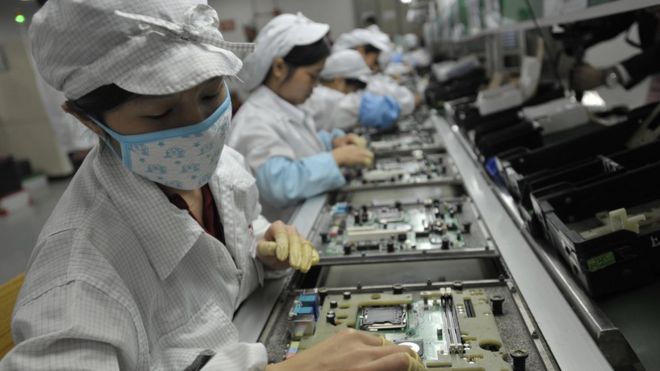iPhone supplier stops illegal overtime

Foxconn, a main supplier for Apple’s iPhone, says it has stopped interns from working illegal overtime at its factory in China.
It comes after a Financial Times report found at least six students worked 11-hour days at its iPhone X plant in Henan province.
The practice breached Chinese laws preventing children from working more than 40 hours per week.
About 3,000 students were reportedly hired to work at the Zhengzhou plant.
Apple said the secondary school students worked voluntarily but they “should not have been allowed to work overtime”.
Both the tech giant and Foxconn have said the interns were “compensated and provided benefits”.
“Apple is dedicated to ensuring everyone in our supply chain is treated with the dignity and respect they deserve,” the firm said in a statement.
“We know our work is never done and we’ll continue to do all we can to make a positive impact and protect workers in our supply chain.”
The Foxconn Technology Group, which operates an internship programme at the Chinese factory, told the BBC in a statement that it took “immediate action to ensure that no interns are carrying out any overtime work”.
It added that “interns represent a very small percentage” of its workforce in China and that the breach of labour laws was inconsistent with its own policies.
The Taiwanese firm reportedly hired the students in September to keep up with demand for the new iPhone X, which Apple has described as being “off the charts”.
The iPhone is critical to Apple’s product line and makes up more than half of its revenue, with more than 46.6 million phones sold between July and September this year.
Its latest model, the iPhone X, was launched on the 10 year anniversary of the iconic smartphone and is Apple’s most expensive handset yet, retailing for £999.
Apple and its suppliers have come under fire several times in recent years amid accusations that they have failed to protect workers at Chinese manufacturing facilities, where some allegedly lived in overcrowded factory dorms and worked excessive hours.
Source:BBC.com



